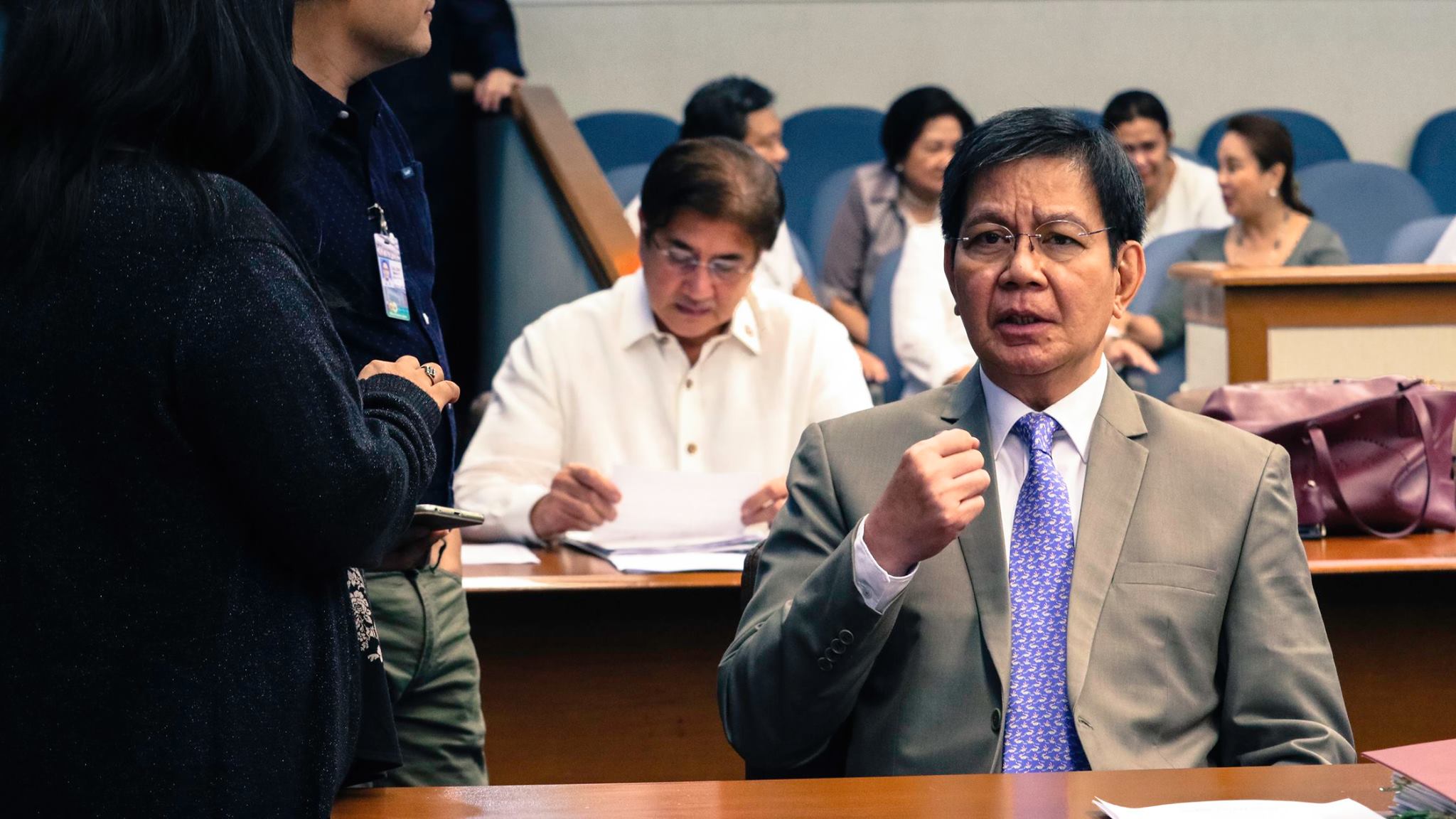
MANILA –Sen. Panfilo “Ping” Lacson filed on Wednesday a bill seeking to give the Internal Affairs Service (IAS) of the Philippine National Police (PNP) more teeth.
Lacson, former PNP chief, said Senate Bill 1310 sought to make the IAS more effective and efficient in the light of efforts to cleanse the police ranks.
Lacson’s bill wants the IAS to have a strength of five percent the total strength of the PNP, with any personnel joining the IAS not joining any other unit of the PNP.
It wants the IAS to conclude its investigation within 30 days, after which appropriate administrative and/or criminal charges will be filed immediately. IAS has up to 30 days to resolve an administrative case against an erring PNP member.
His bill states that decisions by the IAS will be “final and executory but may be appealed before the Interior Secretary, where the penalty involves dismissal, demotion or suspension for more than 90 days; or forfeiture of benefits equivalent to more than 90 days of pay.”
Moreover, the IAS will have regular release of funds based on the approved annual general appropriations, to increase its fiscal independence. It will also conduct inspections and audits of PNP units and personnel.
The bill also seeks to expand the IAS’ motu propio investigation powers, covering “all acts and omissions, which tend to discredit the institution and hinder it from performing its tasks effectively and efficiently.”
It will allow IAS to make its own disciplinary rules and mechanism, including adopting provisions of the Armed Forces of the Philippines’ military justice system for uniformed personnel; and guidelines of the Civil Service Commission for non-uniformed personnel.
Character building
To enhance its capacity for resisting graft and corruption; the bill wants the IAS to conduct character-building and similar activities, conduct intelligence operations in aid of lifestyle checks and investigations; and strengthen investigations of PNP personnel subject to its jurisdiction.
It will also impose restrictions, file appropriate criminal cases against PNP members before courts as evidence warrants, and actively assist in prosecution of such cases. The IAS shall also conduct summary proceedings and hearings of PNP personnel facing administrative charges.
The IAS will file cases against police personnel who violate the provisions of restrictive custody, including the custodian of those under restrictive custody.
It will also issue clearances including recommendations for promotion, transfer or appointment, and for financial transactions of PNP personnel.
“In order for IAS to fulfill (its) functions, it is crucial that the pertinent provisions of the law guarantee that the organization is capacitated and empowered in instilling discipline and enhancing performance of personnel and units of the police force at all levels of its command,” Lacson said.
Composition
Lacson said that the IAS would have a national, regional, district, provincial and city offices. It will be headed by the Inspector General, with a rank of Police Deputy Director General. He will be assisted by deputy inspectors general for administration and operations. The deputies will have a rank of Police Director.
The Inspector General must be an active duty commissioned officer of the PNP, a member of the Philippine Bar in good standing, and a holder of a Police Executive Service Eligibility, Career Service Executive Eligibility, or Career Executive Service Eligibility.
Directors of regional offices will have the rank of Chief Superintendent, while directors of provincial and city offices will have the rank of Senior Superintendent.